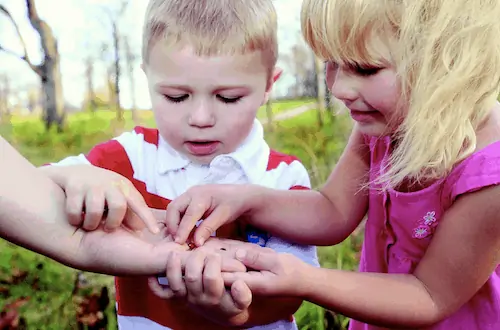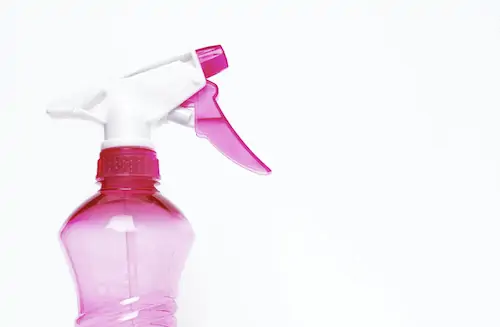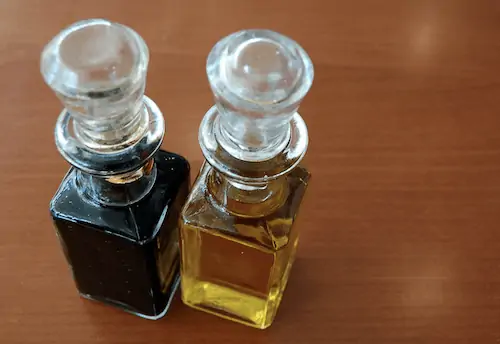Life gets monotonous when things are all about work and responsibilities. To bring some diversity and fun in life, camping seems like a great adventure.
Whether you are a newbie or a professional veteran, you must know the odds that can steal your camping fun away.
The very first odd that comes to any camper’s mind is the bugs. If you don’t take the necessary precautions against these creepy little monsters, then get ready to turn your fun into a tragedy.
That’s why, this article is all about how to keep bugs away while camping, to make sure you enjoy a safe and sound tour out in the wild.
Table of Contents
Different Types of Bugs
Before you decide to keep the bugs away from your reach, you need to know what kind of bugs are usually there to haunt you.
The most common bugs that you might come across while camping are: mosquitos, flies, bees, chiggers, ticks, ants, spiders, etc.
Mosquitos
Among all these bugs, mosquitoes are more likely to buzz around your place and irritate you, causing life-threatening diseases as well.
No one likes to hear the high pitched whining sound of mosquitos while sleeping and not even the threat of malaria, Zika virus, dengue, and so on.
Ticks
Ticks are another form of bugs which can cause problems to your campsite. Some species are even infectious enough to cause Lyme disease.
You better acquire some pre-knowledge about the symptoms of such bugs based diseases, so it might give you the right direction for treatment in case things go wrong.
Bees
Bees are not basically enemy of humans, until and unless you try to bother their structural life. If somehow you provoke them, then get ready to face their aggressive nature and get stung.
Though no one usually provokes them knowingly, sometimes it happens when you hike through woods and accidentally trod on one of their nests.
So, keep your eyes, ears, and senses aware to avoid accidentally inviting such dual-faced bugs from hitting you.
Fire Ants
Those who got bitten by fire ants at least once in their lifetime, know how painful it is, and those who are lucky yet, don’t even dare.
Depending on the place you are camping, one of the biggest concerns you could have is to spend time alongside fire ants.
If somehow you get lucky for not having fire ants around your camping place, still other forms of ants are there to make your fun time unpleasant.
Chiggers
These tiny little creatures can’t be seen through naked eyes. But if they are present around your camping place, then they are more likely to bite you on your waist, ankles, and on places where your skin folds.
Once they get access to your skin, your vacation trip might turn into a nightmare. Their bites can cause extreme swelling and itching.
Flies
Flies like midges or no-see-ums can make you scream out of pain if they bite you. They are mostly active during the dusk or dawn period or when the sky gets cloudy. So, try to apply the following suitable remedy to save yourself from such insects.
Other than these bugs, you might also encounter less familiar insects that cause problems for you, depending on the location where you have decided to camp.
Some places are like home to deadly insects as well. Try to avoid going to such places, otherwise, summer vacation can turn into a life-threatening tragedy.
Homemade vs. Chemical Remedies
To get rid of these unpleasant imageries of swarming, buzzing, crawling, and creeping, you need to make sure that you are equipped with the right remedy.
There are several ways to keep the bugs away and among them, chemical solutions and home remedies are most popular.
Chemical remedies are basically made with the intention of solving your specific problem, where homemade remedies are the results of experimental tendency.
In most cases, chemical-based repellents work well but come with some minor side effects.
On the other hand, homemade remedies are safe to try but not that effective sometimes like chemicals. Chemical-based remedies are easy to get, you just need to buy them, though it requires spending money.
On the contrary, home-made remedies are made with some extra effort of processing other than just buying material. When it comes to enjoying bug-free camping, there are some other precautions too that you must remember.
16 Ways to Keep Bugs Away While Camping
#1. Traditional Bugs Sprays
There is always a traditional way to solve a certain problem. In terms of dealing with bugs, traditional creams and sprays are there to help you out.
In these traditional chemical repellents, you will find a common ingredient named ‘DEET’. Usually, the more your bug repellent has DEET, the more it will be effective.
There are some users who don’t really like the smell of such sprays and creams and some others are allergic to these.
But, despite this fact, these repellents actually work. You can buy a bug repellant cream or spray that suits your skin and fragrance taste the best.
When things go wrong unexpectedly, these traditional bug repellants work like your last line of defense, especially where mosquitos are marching with their army.
You need to ensure one thing that the spray comes with a waterproof feature. It’s suggested to apply to your tent, clothes, and shoes where they mostly bother you. And, it’s better to avoid direct contact with your skin.
#2. Vinegar Repellent
Insects or bugs are not usually fond of coming closer to an overpowering smell. So, apple cider vinegar or white vinegar would work well as a natural remedy to keep the bugs away.
To make this blend of vinegar spray, you need to take a little amount of sage, rosemary, mint, dried lavender, and thyme into a container with almost 30fl oz of vinegar and leave this mixture for 2 to 3 weeks.
You need to shake it well every day and don’t forget to emanate the herbs, once your repellant is ready. Before using it on your skin, you need to mix some water with it.
But, you have to compromise one thing while using it, and that is its smell. You might not like the smell of it if you have a strong sense of smell or if you have issues with the aroma of vinegar.
But, other than this fact, it would work pretty well as a natural bug repellant.
#3. Homemade Natural Remedies
Before you spend your bucks on some chemical spray, you can try some home-made remedies to discourage the bugs from attacking you.
To make this work, you just need some concentrated plant and herb extracts to make your kind of bug repelling essential oil.
You can use any of the following options to make your bug repelling natural spray- Thyme, Citronella, Cedarwood, Cajeput, Sage, Eucalyptus, Mint, Geranium, Catnip, Rosemary, Lemongrass, Tea Tree, Lavender, Basil, Clove, etc.
Mix 10 to 20 drops of any of the above with half cup natural witch hazel, a tablespoon rubbing alcohol, and half cup water into a spray bottle. Now shake it well for a while and you will have your natural home-made bug killer ready to be used.
You can directly apply it to your skin if it’s not too sensitive or allergic. But, it’s better to apply to your clothes rather than on your skin.
In this way, you can enjoy your camping without worrying much about the bugs around. A natural remedy is always the best option as it comes with no side effects.
#4. Bug Expulsive Bracelet
If you are not comfortable applying spray or cream on your body or clothes, then this solution is for you.
Bug expulsive bracelets basically emit bug expulsive chemicals around you in the air when you wear them. That’s how a protective shield is created and it saves you from bugs attacking you.
You can wear these bracelets on your wrist like a watch. It’s also a great choice for children, as they like to wear these and they can’t stand strong against DEET sprays.
#5. Bug Expulsive Coils and Diffusers
Bug repellant companies are coming up with diffusers that basically contain a pesticide named ‘metofluthrin’. These diffusers are able to protect you from 80-100% bugs for up to 12 hours.
There comes a fan which is battery operated and it spreads the chemical. So, you can use any of the bug expulsive diffusers to create a protective shield around you.
Just like these diffusers, there are pyrethrum based coils that emit a strong smoky mosquito expulsive scent.
Bugs usually hate to come closer to this strong smell of coils, thus you can save your camping fun from getting spoiled because of bugs.
#6. Food Smell That Bugs Hate
Whether you are aware of the fact or not, insects or bugs don’t like the scent of some common foods that we eat regularly. Most bugs don’t like the smell of garlic, onions, oranges, and lemons.
The interesting thing about this remedy process is, you don’t have to stress about making any mixture, and it’s all about the direct use of the foods that you regularly eat.
To make it work, you need to rub onions, garlic, or citrus peels on your skin and you will discover bugs are not taking the risk to visit you.
When you are cooking outdoor, garlic and onions are generally used, so it initially creates an anti-bug atmosphere around you as well.
If you are not comfortable rubbing garlic on your skin, there is another way to do it. Garlic capsules can be an alternative in this case, when you take these with you, the scent repels the bugs around you.
Keep in mind, if you don’t like the smell of garlic yourself, then better to look for other alternative bug-repelling options.
#7. Mint
Another natural remedy against creepy bugs outdoor is using mint. Whether you want to keep peppermint, spearmint, or any other form of mint with you while camping, it will work like a natural bug-repelling scent.
Though most of us tend to find the smell of mint as refreshing and crispy, it’s not the same with bugs, they just hate it. You can use several methods to keep this minty flavor around your place.
For example:
- Using strong mint-flavored mouthwash or toothpaste
- Keeping some plants of mint in your communal space
- Having some mint food items for strong flavor
- Filling a bottle of spray with mint mouthwash and spraying it around your campsite
#8. Catnip Oil
Catnip is an essential oil that can be hydrogenated in a way that you can use it as a cream or spray. It comes with pretty effective mosquito expulsive properties.
In most cases, it can provide your skin with a protective layer for almost 8 hours. According to studies, 15% of concentrated catnip oil works best as a bug repellant.
#9. Dried and Fresh Herbs
If you don’t want to stress about making essential oil for your need, then there is another natural bug-repelling remedy for you, which doesn’t require much work.
We have already mentioned the herbs that you can use to make essential oil such as, sage, eucalyptus, rosemary, etc.
But, in this case, you can use these dried herbs as burning fuel for the campfire.
So, it will create an anti-bug scent and smoke that will keep the bugs out of your area. Or, you can rub these herbs on your body as a quick solution against these creepy critters.
#10. Campfire, Candles, and Lanterns
An important and natural way to repel the bugs out of your reach is to light the campfire.
Who would like to fight against the wrath of a hot campfire? No one, let alone the tiny bugs.
Generally, the campfire is not just meant to be a food processing source, rather it’s a very effective way to repel the bugs away.
Other than campfires, you can also use citronella candles, as they produce pungent lights that help to beat off the bugs. You can get some citronella into a jar and put them around your camping place.
Another interesting way to repel the bugs is investing in lanterns. Bug repelling lanterns basically contain built-in cartridges that release a certain chemical that bugs hate to come closer.
#11. Insect Repelling Clothes
Bugs like mosquitos are most active when it’s either dusk or dawn hours. So, in these hours, wearing long sleeves along with hiking leggings or pants might help you a lot to save yourself from bug bites.
But, even when you wear dresses like these, mosquitos still find ways to bite you through clothes sometimes. And, if it’s a hot summertime, then things can become unbearable.
That’s why some companies are manufacturing and selling clothes that are infused with bug repellant in it’s fabric.
This might help you a lot from the stress of spraying chemicals or applying sticky creams. Investing in such anti-bug clothes would be a great decision to enjoy bug-free camping.
Another important thing to remember, mosquitoes get attracted to dark-colored clothes, so it’s better to avoid such dresses.
#12. Using Body Care Products Which are Fragrance-Free
Just because you are camping outdoor that doesn’t mean you will go unwashed in your whole journey. You will definitely keep yourself clean and fresh as much as you can.
In order to do so, you might take somebody care products like- shampoo, soap, deodorant, aftershave, body spray, perfumes, and hair care products, and so on.
But, if your body care products are equipped with perfume, nice fragrance, or smell, then most likely bugs will be also interested to visit you as they also love such smells.
So, it’s better to use body care products and toiletries that are not infused with artificial perfume or smell.
You better use products which are natural and unscented, as it will not attract the bugs at least.
#13. Being Hydrated
When you go outdoor for camping, one of the most important things to do to survive well is to be hydrated.
How is it even related to keeping bugs away from your reach? Well, other than keeping you alive and healthy, water makes sure you don’t get too sweaty due to dehydration. And, bugs are attracted to sweat, hot skin.
So, when you are not hydrated well, you get sweaty and bugs are more likely to come closer to attack you. In this way, being hydrated helps you not to fall into the list of bugs prey too early!
#14. Clean Camping Site
Do you really want to enjoy camping without being worried about the bugs or insects? Then, you must keep in mind one thing, whether you will be haunted by these little predators or not largely depends on the campsite’s situation.
If you are going to camp in a place where things are wet, muddy, and full of dirt, then obviously bugs and insects will be there to bother you, as they live in such comfort zones. So, you need to make sure that your camping site is clean and safe to camp.
If somehow your camping location is not that clean and you couldn’t find any other place to camp other than this, then before you even start your camping, try to clean the place as much as you can.
Having a clean campsite means, you are going to enjoy a safe camping trip. If you leave your dishes unwashed and food containers open overnight, then these creatures will take it as an invitation to bug you.
To keep your campsite clean, remember a few things to maintain properly.
- Once you are done eating your food, dispose of or store the remaining portion properly in a plastic container by using a protective lid.
- If you don’t want bugs to haunt you, then make sure you don’t leave garbage uncovered. You better dispose of them in a designated place for trash.
- Wash your dishes just after you are done with your meal.
- Before you go to sleep or leave the camp, try to ensure there is no food or trash left in that camping area.
#15. Close the Zips of Your Tent
Most probably, you won’t find something as irritating as the buzzing sound of bugs when you are about to sleep in your tent.
The best way to keep the bugs away from your tent is, not to let them have the chance to get in. This is the very first approach to minimize the number of bugs that can ruin your camping fun.
Once these bugs get the chance to enter your tent, then it will become a hard struggle to keep them out of the tent.
Whenever you go out or enter into your tent, make sure you close the zip of your tent or the door of your particular staying unit.
#16. Mosquito Netting and Screen Room
Would you mind putting some extra effort to keep bugs away? If no, then you must go for a mosquito netting or screen room.
Screen rooms are basically large canopy or tents that have screened walls through which you can see outside and it allows the fresh air to pass through. It also helps to beat off bothersome pests.
You can also make a screen room of your own by mounting bugs netting either to trees that stand nearby or onto poles. This might help you a lot to repel the bugs out of your reach.
Final Words
Life is not like a fantasy movie where you have instant superpowers to control any unwanted situation.
When it comes to camping outdoor, it can only be enjoyable if you are aware of the odds that can ruin your trip and you take the necessary steps to fight against them.
Keeping bugs out of your reach is one of the key concerns to ensure safe, sound, and thrilling camping fun.
We hope this article about how to keep bugs away while camping was helpful enough for you to make you prepare for your next bug-free tour. Good luck!





